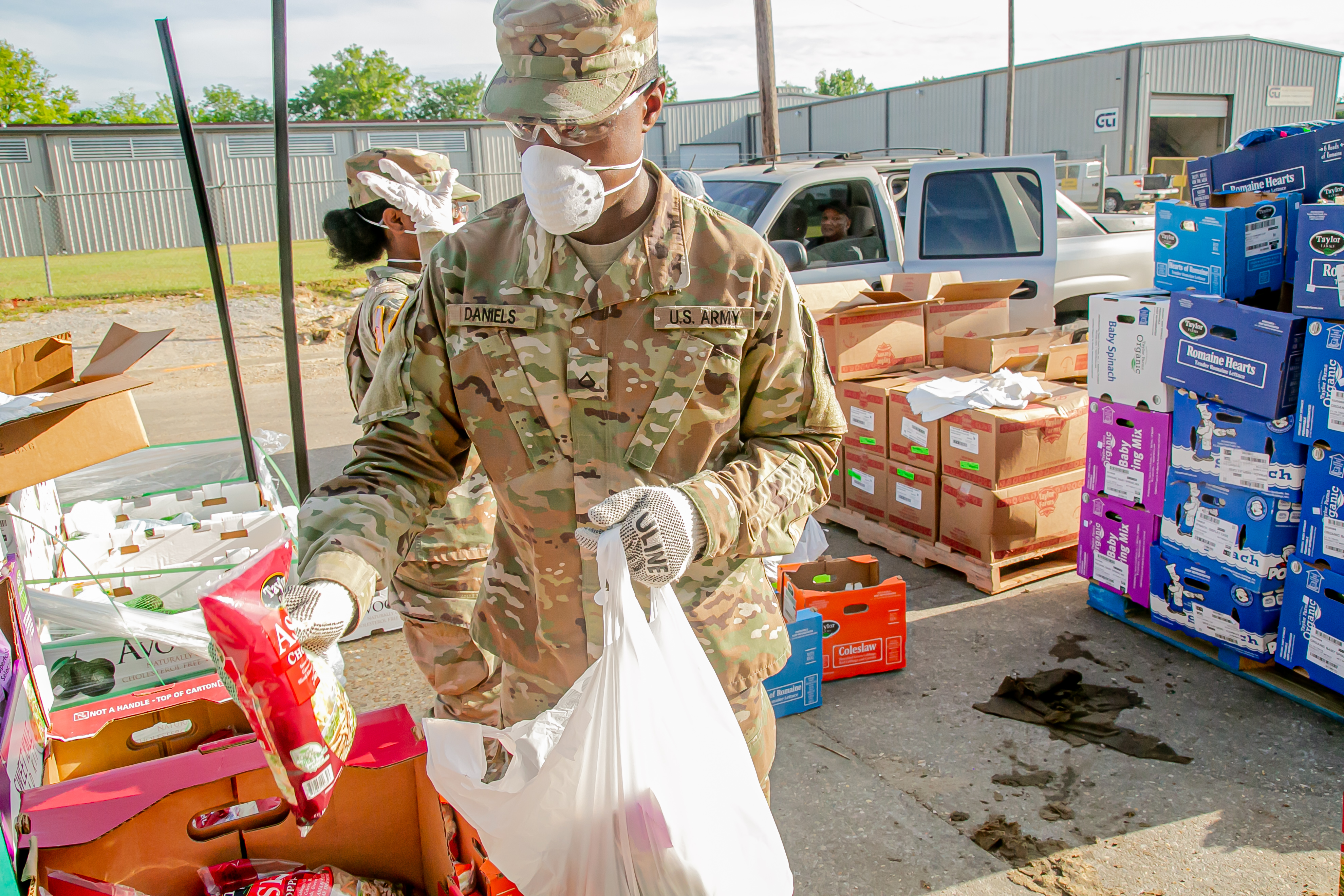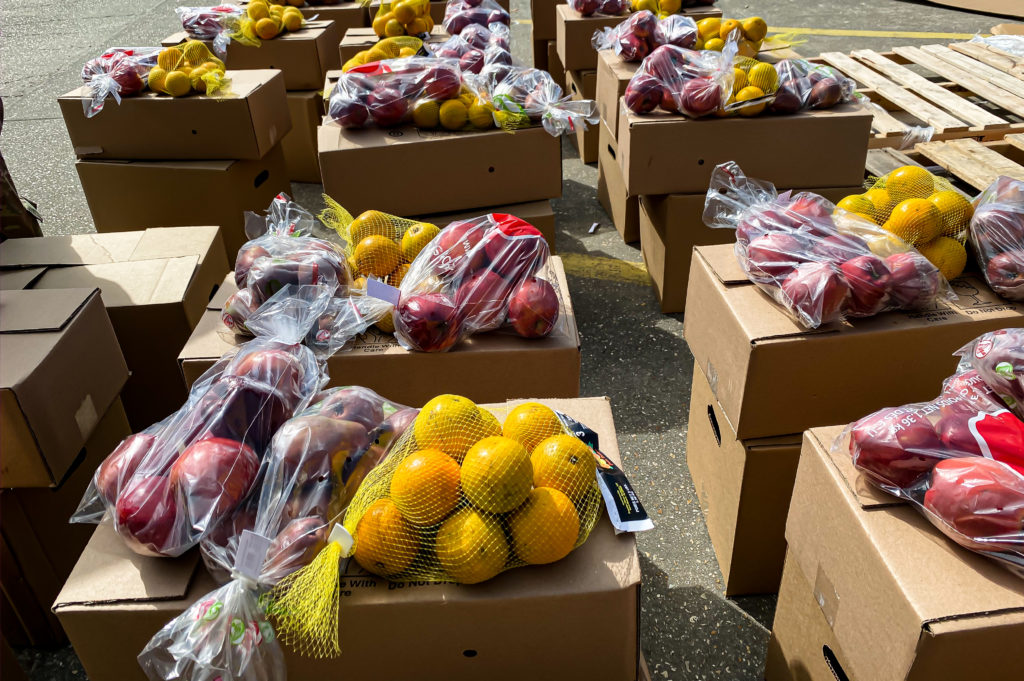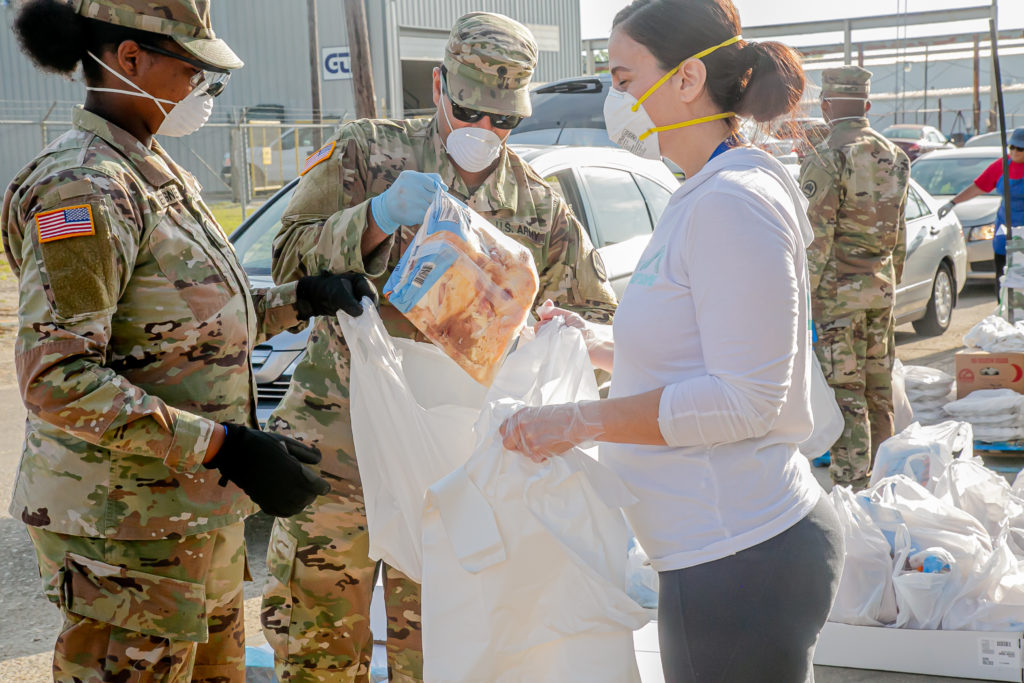
Louisiana food banks face an 80% increase in demand as the state reopens
Statewide job losses and the closure of K-12 schools have put an unprecedented strain on food banks both locally and around the nation.
More than 773,000 people in Louisiana live with food insecurity, according to Feeding Louisiana Executive Director Korey Patty. He estimates that number has grown to somewhere around 1.1 million people due to the coronavirus pandemic.
“Food insecurity is a real issue here in the state,“ Patty says. “This is something that a significant portion of our citizens deal with on a regular basis.”
|
|
Feeding Louisiana advocates for the needs of food banks around the state, including the Greater Baton Rouge Food Bank. These food banks work through a network of more than 900 community and faith-based organizations that volunteer to distribute food.
But concerns about the coronavirus have led to the shutdown of many of these partner agencies, pushing food banks to create mobile distribution sites and rely on the Louisiana National Guard to continue serving their communities.
Food banks are running at higher levels for longer periods of time than they are accustomed to, according to Greater Baton Rouge Food Bank CEO Mike Manning. Normally when food banks are running at higher levels due to natural disasters, they can pull resources from other regions to meet their needs. The widespread nature of this pandemic has made that impossible.
An 80% increase in need across the state’s food bank network has put a strain on every food bank’s resources, Patty says. About 40% of the people now relying on food banks for their meals have never used those services before.
Raised prices, increased need and closed partner agencies caused serious supply issues at the Greater Baton Rouge Food Bank at the onset of the shutdown, Manning says. The food bank is having to serve the public more directly in areas where partner agencies were responsible for food distribution.
The uncertainty of the next few months makes planning difficult for the food banks. Manning anticipates many challenges over the next two months as people slowly begin returning to work. Rather safe than sorry, Manning and the Greater Baton Rouge Food Bank are planning like this crisis is going to continue for a while, but it isn’t going to stop them from serving.
“We were here before the COVID, we’re here during the COVID, and we’ll be here after the COVID,” Manning says. “We will continue to feed people in need as long as there are people in need.”
At the onset of the coronavirus pandemic, the Louisiana Workers’ Compensation Corporation and its private foundation immediately created a three-phased, $1.1 million dollar response plan. During the first phase, it donated $100,000 to Feeding Louisiana.
Donations like this can go a long way. The general rule of thumb is a dollar donated can provide up to four meals through the food bank network, Patty says. Food banks are able to combine their leveraged buying power with food donations and volunteer work to make the most out of every dollar.
And there is no doubt that food banks will play a crucial role in Louisiana’s economic recovery.
“History has shown that Louisiana is filled with optimistic and resilient people,” says LWCC Foundation Chief Marketing and Customer Experience Officer Seth Irby. “But they need the resources to help overcome adversity.”
|
|
|


